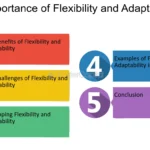Developing Leadership Skills: Are essential for success in every aspect of life. Whether managing a team, guiding a project, or inspiring a community, strong leadership lays the foundation for achievement. Effective leaders motivate others, drive innovation, and foster collaboration. Developing these skills requires practice, self-awareness, and a commitment to continuous growth.
Why Leadership Skills Are Crucial
Leadership is not just about managing people; it’s about inspiring them to work toward a shared goal. Strong leadership drives change, builds trust, and enhances personal growth. When a leader is dependable, transparent, and fair, they create an environment that encourages productivity and innovation.
- Motivates teams by creating a shared vision.
- Drives change even during challenging times.
- Fosters trust and collaboration.
Traits of an Effective Leader
Being an effective leader requires more than just technical skills. Leaders need to be adaptable, empathetic, and visionary. These traits allow them to handle challenges, inspire their team, and navigate uncertain situations confidently.
For example, visionary thinking helps leaders set clear goals and guide their team toward achieving them. Empathy ensures they understand their team’s needs and foster strong relationships. Adaptability helps them remain effective even in dynamic environments.
Steps to Develop Leadership Skills
Developing leadership skills involves a blend of personal reflection, practice, and learning. Begin by cultivating self-awareness. Reflect on your actions and seek feedback to improve.
Effective communication is another vital skill. Leaders must practice active listening and ensure their message is clear. Non-verbal cues, like body language, play a crucial role in conveying confidence and approachability.
Key actions to develop leadership skills include:
- Delegating tasks to empower your team and focus on strategic goals.
- Practicing decision-making by assessing situations and taking calculated risks.
- Building emotional intelligence to manage emotions and resolve conflicts effectively.
Practical Ways to Enhance Leadership
To grow as a leader, seek opportunities that challenge you. Start small—leading a meeting or organizing an event can provide valuable experience.
Studying great leaders can also offer insights. Read biographies or watch interviews to learn from their successes and failures. Leadership workshops and training programs are excellent resources for acquiring practical tools and techniques.
Leadership in Different Contexts
Leadership is vital in various settings, each requiring unique skills. In the workplace, effective leaders align team efforts with organizational goals while encouraging personal development. Entrepreneurs use leadership to turn visions into successful businesses by inspiring stakeholders and navigating market changes.
In education, leadership helps teachers and administrators guide students toward academic and personal success. Similarly, community leaders address societal issues and implement impactful changes for the greater good.
Table of Contents
Challenges in Leadership
Being a leader comes with its challenges. Managing conflict is often a significant hurdle. Leaders must approach disagreements constructively to maintain harmony within their teams. Balancing authority with approachability is another challenge. Leaders must remain decisive while being empathetic listeners.
Uncertainty is a constant in leadership roles. Leaders face situations without clear answers and must remain flexible and confident in their decisions. Building consensus among team members with diverse viewpoints can also be complex but is essential for achieving shared goals.
The Future of Leadership
As we move into 2025 and beyond, leadership is evolving. Inclusive leadership is becoming increasingly important, focusing on creating diverse environments that encourage innovation. Leaders are also embracing technology, managing virtual teams, and leveraging AI for decision-making. Sustainability is another key focus, with leaders integrating environmentally responsible practices into their strategies.
Final Thoughts: Developing Leadership Skills
Leadership skills are not static—they grow and evolve with experience and effort. By embracing self-awareness, learning from others, and practicing key traits, anyone can become a successful leader.
Effective leadership is about turning vision into reality while empowering others to reach their potential. Whether guiding a team, inspiring a community, or navigating personal challenges, strong leadership skills pave the way for success in every area of life.


